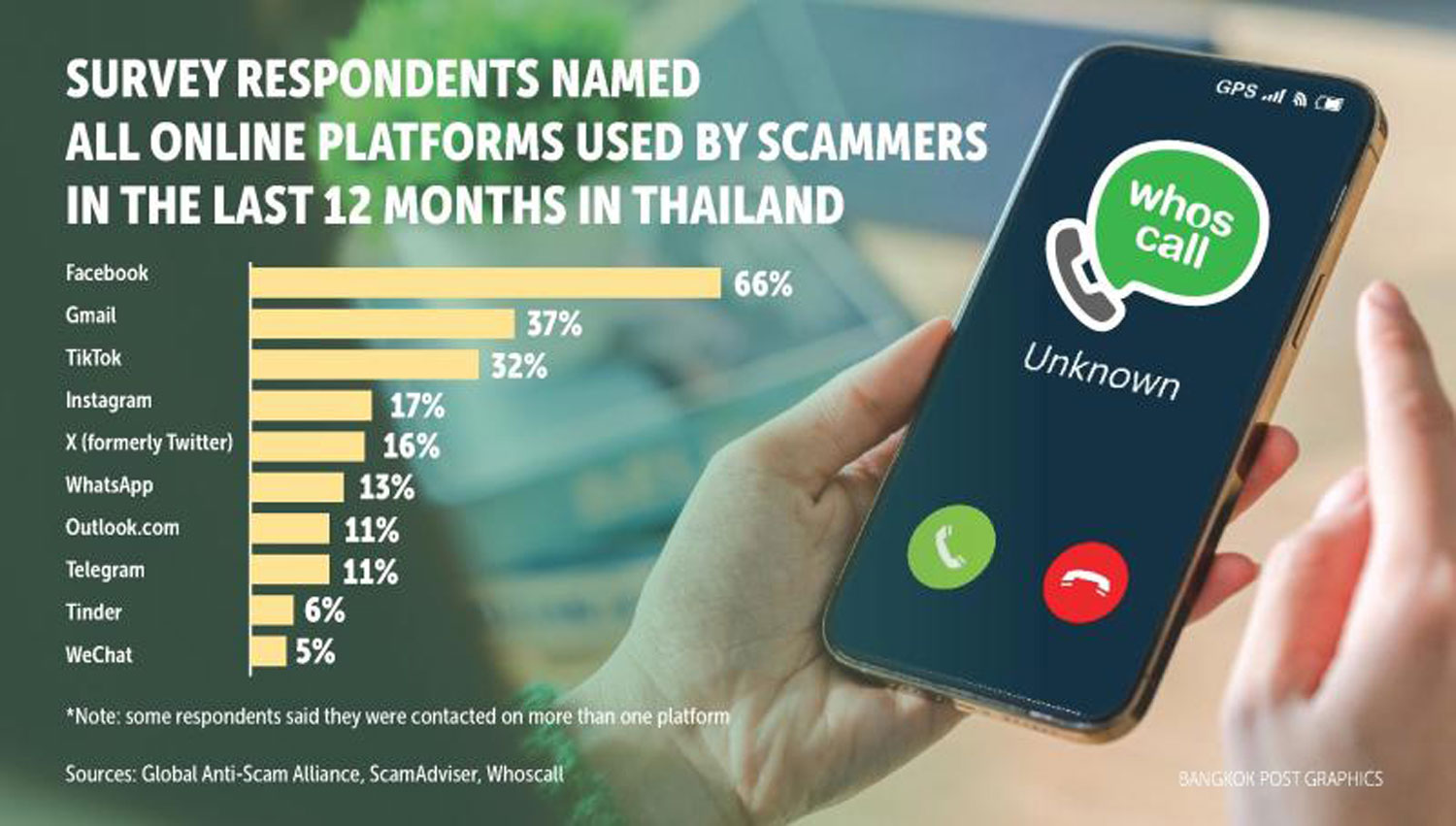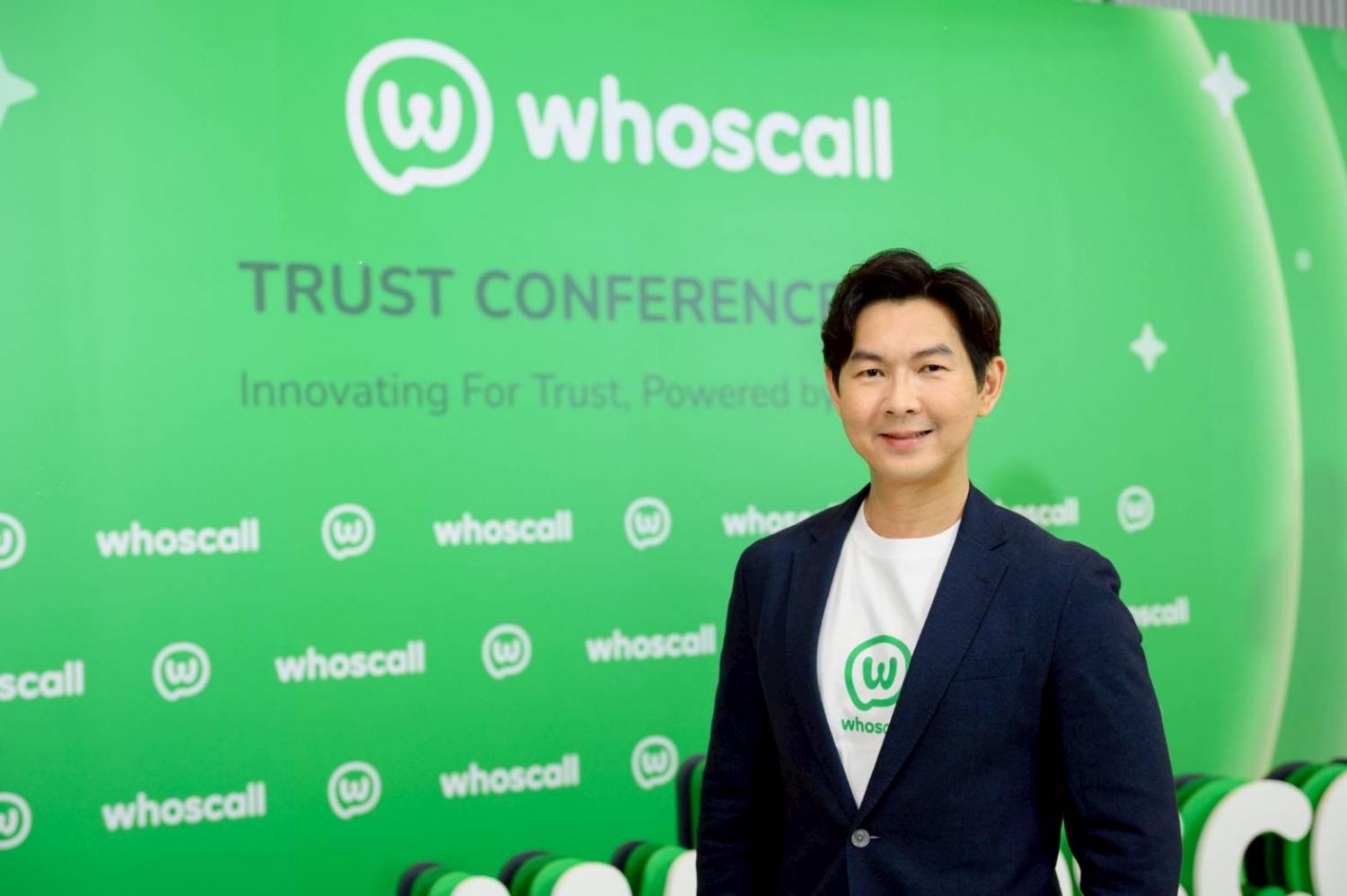Gogolook becoming a scam prevention firm
Whoscall developer undergoes transition
Gogolook, the developer of anti-scam application Whoscall, is undergoing a transformation from a scam detection company to a scam prevention firm.

The firm chose Thailand as its global development hub to launch new features that support its shift from caller ID services to focus on building an anti-scam community.
The company’s transformation is propelled by the advancement of artificial intelligence (AI) to counter sophisticated scams, Jeff Kuo, Gogolook chief executive, told the Bangkok Post at a conference on Thursday.
The transformation is also driven by a generation shift, requiring the company to revamp its interface using gamification and community features to appeal to younger users.
Mr Kuo said the company is repositioning itself from a utility/tool for scam detection to a trust tech company with a vision of prevention rather than detection. He said this involves empowering individuals, enterprises, and governments through technology to fight scams.
Thailand is identified as the “centre battlefield of anti-scam in Southeast Asia” and Gogolook uses Thailand, one of its duo of headquarters — the other being Taiwan, to develop its global innovation hub for anti-scam technologies.
Southeast Asia has become a major battleground for scams, and Thailand is positioned to export the company’s anti-scam solutions amid a surge in cyber scam operations across the region.
Thailand faces an unprecedented scam crisis, with an estimated annual loss of 115 billion baht, according to the Global Anti-Scam Alliance, which counts ScamAdviser and Whoscall among its members.
The group surveyed 1,000 Thai adults and found 72% have encountered scam attempts, with the average person facing 172 scam encounters annually — one attempt every two days.
Most critically, 60% of Thai adults have been successfully scammed in the last 12 months, with 14% losing money at an average of 12,955 baht per victim.
Over the past 12 months, Facebook and Gmail emerged as the top channels for fraudulent activity, accounting for 66% and 37% of reported scam encounters, respectively.
Other frequently targeted platforms include TikTok (32%), Instagram (17%), X (formerly Twitter) (16%), WhatsApp (13%), Outlook.com and Telegram (both at 11%), followed by Tinder (6%) and WeChat (5%).

Kuo: Gogolook a trust tech company
“We chose Thailand as the first country to roll-out our major milestone — upgrading the Whoscall app from simple caller ID tools into a community driven digital protection platform.”
It now features AI-powered defence, user reporting, gamified rewards, and a community-driven system that empowers users to interactively prevent scams.
Whoscall aims to grow into a social platform where people can “do good” and “prove impacts”, leveraging gamification and badge systems to facilitate corporate environmental, social and governance contributions.
“The strategies and products developed here are intended to be rolled out to other countries, particularly in Southeast Asia and potentially globally,” said Mr Kuo.
The nature of cyberthreats has drastically shifted. Scams and social engineering, which accounted for 30% of cyberthreats at the pandemic’s start, represented 90% as of 2024, driven by the “deep fake wave” powered by AI.
The company is focusing on adopting AI and flexible work models to attract global talent, engaging businesses with trust-building tools, advocating for stronger international laws, and promoting digital literacy and scam prevention education across all age groups, said Mr Kuo.
This approach also enables the company to grow more revenue streams from the business and government sectors, he added.
Financial losses from scams globally amounted to roughly 1% of global GDP in 2023, highlighting the scale of the problem and the potential for regulatory intervention.
Despite economic challenges, the company is on track for continuous quarterly profitability. The growing severity of the scam problem paradoxically creates opportunities for anti-scam companies.
“We face an impact on reduction of advertising revenue but with a shift towards premium/subscription models this has made the company less vulnerable to fluctuations in the advertising market,” said Mr Kuo.
Source – Bangkok News




